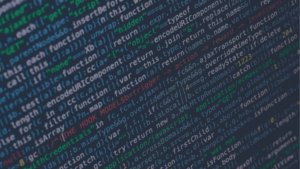
The hotel industry has recently seen a surge in the volume of cyber-attacks and data breaches. This has compromised a dangerous number of their customers’ personal information. Specifically, within the United States, there have been breaches among notable hotel groups such as Marriott International and MGM Resorts International within the last few years. Most recently, as of June 2023, Marriott International confirmed yet another breach where hackers had stolen 20 gigabytes of sensitive data. This is an ongoing threat to many hotel groups and with the sophistication of the digital environment is important to remain vigilant and aware of these attacks.
Why Hotels are vulnerable
Hotels handle a vast array of personal data including, credit card information, guest names, contact details and more. This personal data is highly attractive to cybercriminals who profit from stolen information through identity theft, financial fraud, and other malicious activities. Furthermore, the involvement with third-party vendors and the complexity of hotel digital systems can create potential weak points that attackers can exploit. Moreover, human elements can also play a role, as a diverse workforce with varying levels of cybersecurity awareness may fall victim to phishing attacks and other manipulation tactics.
In the event a data breach occurs, hotels will face an array of financial, reputational, and legal consequences. This can involve, legal fees, compensation for affected guests and potential lawsuits. Hotels need to ensure they have robust privacy and security programs in place that are proactive in preventing and addressing these threats.

5 effective data management practices for Hotel Groups
Hotel groups must understand their responsibility to safeguard the personal data they hold. They should be proactive and implement preventative measures to ensure that they operate with safety in mind. This may include:
- Ensuring the security of their privacy and security programs: Hotels should have robust programs in place. They need to assess their effectiveness in maintaining data security.
- Data Minimisation: Collect and store only necessary guest data and regularly overhaul data that has fulfilled its use
- Regular software updates: Keep all software, operating systems, and third-party applications up to date to address known vulnerabilities
- Incident Response Plan: Develop a clear plan to respond to data breaches. This includes transparent communication with affected parties and regulatory authorities
- Employee Training: Regularly educate staff about the best cybersecurity and privacy practices
In adopting these proactive strategies, hotel groups can enhance their data management and handling practices. In additional, these practices can also mitigate potential risks.
A solution that works for you
At DataBench, we have leading automated solutions that work hard to keep your customer’s personal data safe. Our platform can integrate with your existing systems to map and locate data across your organisation. It gives you a better understanding of where your data resides giving you control. It has the ability to identify suspicious and unusual activity and will proactively alert your business to address these concerns. If you’re interested in enhancing your data management and handling practices, contact us and book a demo today.








